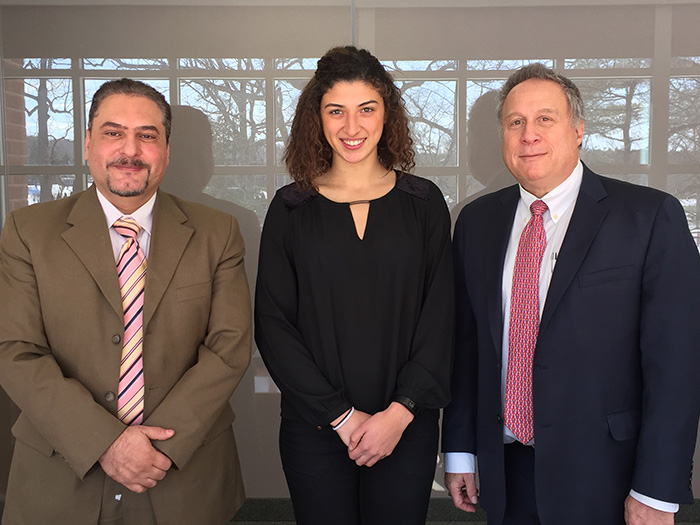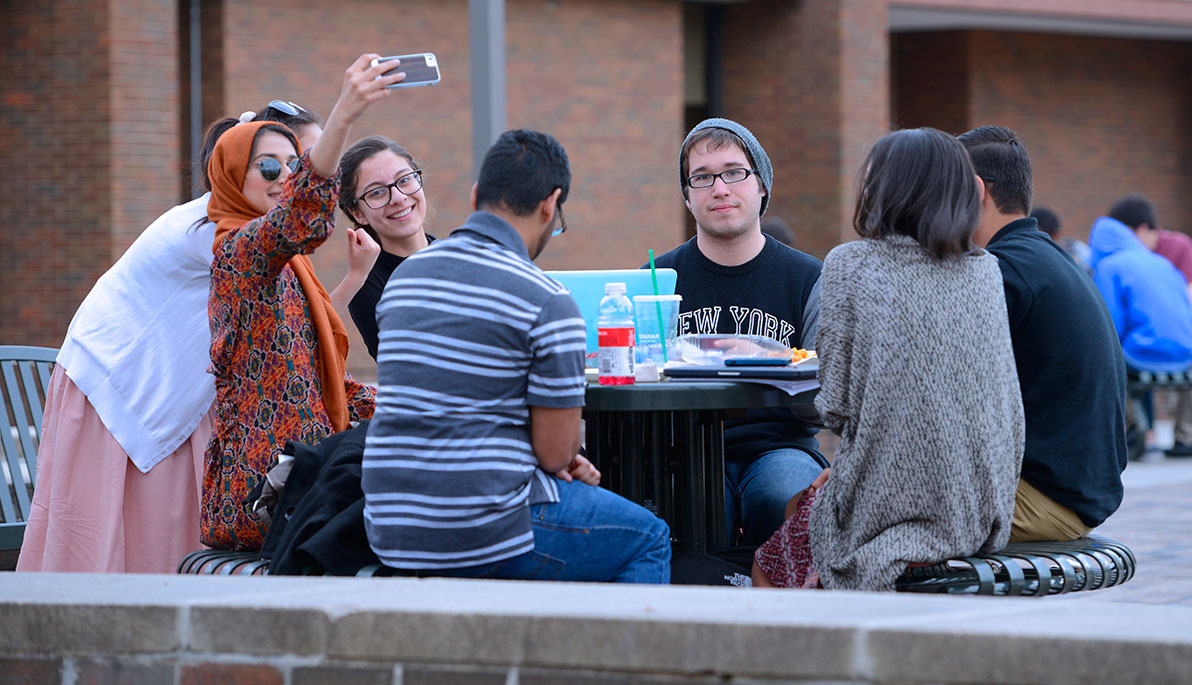News
Fitting in at U.S. Universities as an International Student
March 27, 2017
International students face many hurdles when they first arrive at an American university. There is the culture shock, the language barrier, not to mention finding a way to “fit in.”
In their research study, International Students’ Adjustment to U.S. Universities, NYIT School of Management faculty members Amr Swid, Ph.D., and Joshua Bienstock, J.D., along with international M.B.A. student Dina Ragab, set out to understand the adjustment process of international students in the United States and to identify how the students’ home culture and individual personality traits can help or hinder their success.
In their initial review, the co-authors found there are major variables affecting student adjustment, including origin, undergraduate versus graduate status, gender, marital status, and major field of study. What they discovered, however, is that there is a gap in existing research. “We think that there are two overlooked variables in evaluating international students’ adjustment, which are cultural intelligence and the personality of the international students,” said Swid.
Along with examining culture and personality, the research is also looking at how universities may help international students adjust through various methods. “Some universities have embraced the mediation processes to resolve conflicts between students and universities,” added Bienstock. “Conflicts are often exacerbated by cultural and personality differences between international and domestic students and faculty.”

From left: Amr Swid, Ph.D, Dina Ragab, and Joshua Bienstock.
The study will take place over two academic years, and the group is currently in the first year of the research. “This year we are focused on preparing the conceptual model and doing the necessary research to identify all the important variables and measurements,” said Ragab, an international student from Egypt. (She was also the winner of last year’s No Ordinary Journey essay contest where international students shared personal stories of adjusting to a new country.) “We have designed the paper in a way that there are three different variables and approaches.”
The conceptual model of the research study touches on three categories: Personality Approach, Cultural Approach, and Mediation Approach. The group has already presented papers on all three topics and won recognition at three conferences for their efforts:
- International Students’ Adjustment Process in the U.S.: A Cultural Approach (which Ragab presented) won at the International Academy of Business and Economics conference in West Palm Beach, Fla.
- International Students’ Adjustment Process in the U.S.: Utilizing a Campus Mediation Approach (which Bienstock presented) won at the American Society of Business and Behavioral Science conference in Las Vegas, Nev.
- International Students’ Adjustment Process in the U.S.: A Personality Approach won at the 6th International Conference on Innovational Challenges in Social Sciences, Humanities, Management and Business Studies (which Swid presented) in Casablanca, Morocco.
“Institutions like NYIT are currently trying to ease the adjustment process by offering English language instruction, orientation programs, counseling, hosting family programs, and programs linking foreign students with American student study partners,” said Swid.
Ultimately, the research will help universities improve attraction and retention rates of international students and help international students succeed and feel at home during their stay in America.




